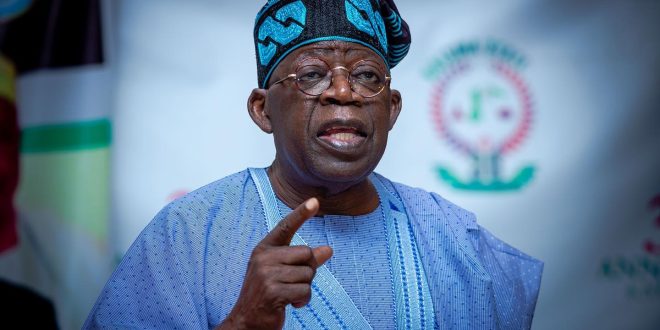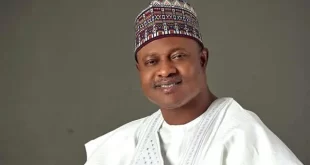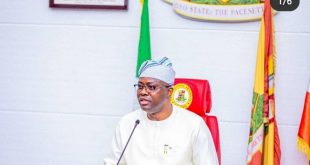Olatunde Oluwasola
President Bola Tinubu is taking a stand against Nigeria’s heavy dependence on borrowing to fund public expenditures. He expressed this commitment during the inauguration of the presidential committee dedicated to fiscal policy and tax reforms.
Over the past eight years, Nigeria’s public debt surged by a staggering 501 percent, soaring to N72.55 trillion in March 2023 from N12.06 trillion in March 2015. This surge is attributed to increased borrowing, compounded by global pandemic impacts and economic recessions in 2016 and 2022.
Data from the Debt Management Service (DMO) reveals the composition of the N75 trillion total public debt, including N19.64 trillion foreign debt, N30.21 trillion domestic debt, and N22.7 trillion of Ways and Means lending by the Central Bank of Nigeria (CBN) to the Federal Government.
The nation allocated N3.36 trillion to debt servicing in 2022, marking a 14.68 percent rise from N2.93 trillion in 2021. External debt servicing accounted for N1.07 trillion, while domestic debt servicing reached N2.56 trillion.
Nigeria’s debt service-to-revenue ratio has climbed from 83.2 percent in 2021 to 96.3 percent in 2022, with projections foreseeing a potential increase to 103 percent in 2023, as noted by the World Bank.
President Tinubu, who established the Presidential Committee on Tax Reform chaired by Taiwo Oyedele, reaffirmed his commitment to dismantling obstacles hindering business growth. He emphasized the importance of focusing on returns, income, and consumption rather than taxing poverty or production.
Tinubu stated, “I am determined to end this cycle,” aiming to promote efficiency in revenue generation and reduce the need for borrowing. The committee’s mission includes addressing issues like multiple revenue collection agencies, high administrative costs, taxpayer compliance challenges, coordination between fiscal policies, and transparent use of tax revenue.
The President envisions transforming Nigeria’s tax system to facilitate sustainable development, with a target of achieving an 18% Tax-to-GDP ratio within three years. The committee’s recommendations will drive swift reforms within thirty days and critical measures within six months, culminating in full implementation within a year.
This initiative has garnered support from various sectors, including the World Bank. Shubham Chaudhuri, the World Bank’s Country Director for Nigeria, commended the removal of fuel subsidies, which contributed to increased revenue and economic strength.
 National Telescope national telescope newspaper
National Telescope national telescope newspaper



